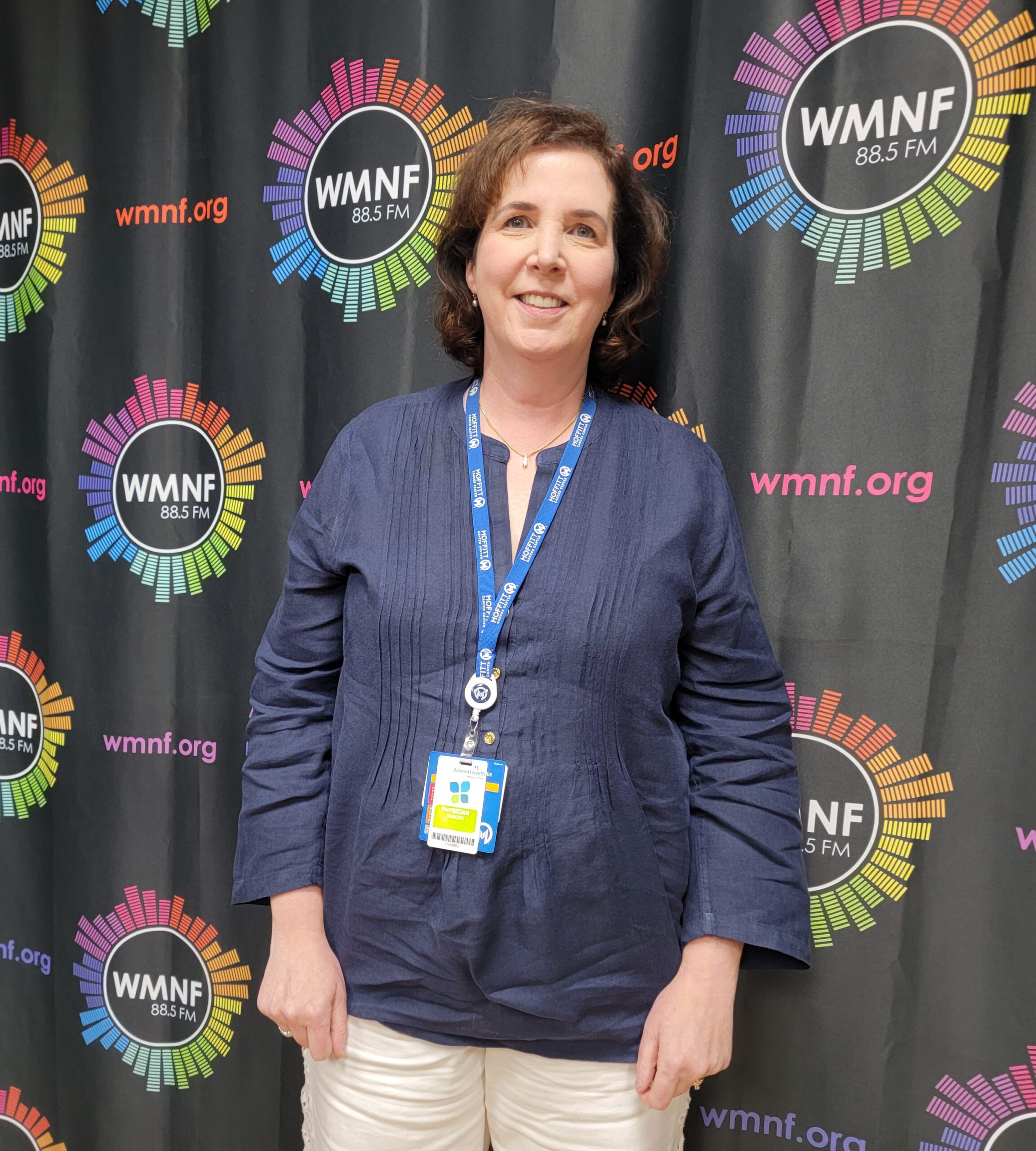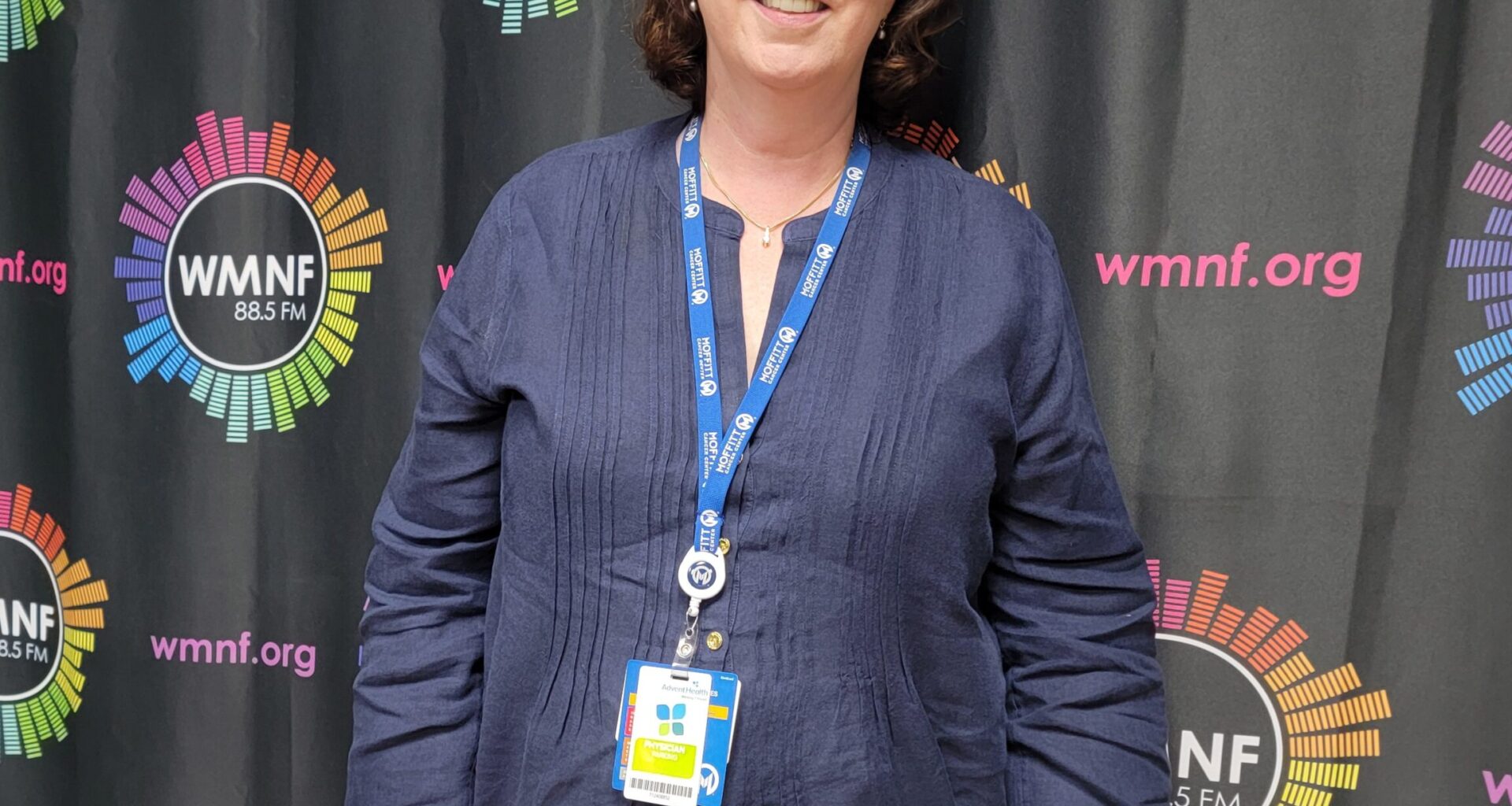
Dr. Tracey O’Connor, Medical Oncologist, Moffitt Cancer Ctr.
It is October, and it’s Breast Cancer Awareness month. On MidPoint on October 1st, we interviewed Dr. Tracey O’Connor, a medical oncologist at Moffitt Cancer Center’s Breast Oncology Department, about recent advancements in breast cancer prevention, diagnosis and treatment. To summarize Dr. O’Connor’s perspective, the advancements made over the last 10 years have largely made most breast cancer a very treatable condition now. She emphasized the importance of maintaining a healthy diet and an active lifestyle to prevent cancer, and urged early detection through mammography for all women ages 40 and older. That may be followed up by additional testing, such as ultrasound or breast MRI, and if there is a mass, then a biopsy is needed to determine if that mass is cancer, and if so, to investigate the genetics of the tumor. Dr. O’Connor explained that advancements in genetics have made it possible to better tailor breast cancer treatments to the type of cancer revealed through genetic testing, and many of those treatments have advanced to be less invasive and the side effects less debilitating than in years past.
The Trump Administration’s Budget Cuts Will Affect Advancements in Breast Cancer Research
One would think that cancer research and the development of new treatments and drugs would be a bipartisan priority of any administration, but that is not how it appears to be going since President Trump took office. I did not ask our guest from Moffitt Cancer Center to comment on any issues that might border on the political, because Moffitt receives substantial federal funding through various channels. We certainly didn’t want to put them in the position of disrupting any of their still ongoing federal support, which we all know is now dependent on complete fealty to the Trump administration. But, at WMNF, Resistance Radio, we are committed to speaking truth to power, and the truth here is that the Trump Administration’s cuts to science and particularly to cancer research will inevitably set back developments in cancer prevention, diagnosis, and treatment.
Following the recent directives and proposed budget cuts by the Trump administration, breast cancer research has been affected by reduced funding for federal health programs generally. Moffitt, for example, receives significant funding from the NIH, the National Institutes of Health, particularly from the NCI, the National Cancer Institute, for their cancer research programs. But, in the first half of 2025, the NIH terminated thousands of grants, including some for breast cancer studies. The cancellation of some grants was tied to Trump’s Executive Orders targeting DEI initiatives, with some researchers reporting their grants were terminated for no reason other than using DEI-related terminology. Also, a proposed cap on indirect institutional costs for NIH grants has directly impacted institutional funding for cancer research. These funds cover essential overhead expenses for research labs, including facilities, equipment, and administration. Organizations like the Breast Cancer Research Foundation (BCRF) are increasing their own support to mitigate the federal reductions.
Breast Cancer Organizations are Alarmed by Threats to Eliminate Funding for Cancer Prevention
Other non-profit breast cancer organizations, such as the Susan G. Komen Foundation and the American Cancer Society have raised the alarm over budget proposals that threaten to eliminate or significantly reduce funding for cancer prevention programs. This includes the National Breast and Cervical Cancer Early Detection Program, which provides screening services to low-income individuals. Budget cuts and funding uncertainty have already led to layoffs, hiring freezes, and the termination of federal employees at the NIH and other agencies involved in cancer research. This disruption is impacting early-career scientists in particular, as the funding instability makes research a less secure career path. Who will replace the work of our older scientists when they retire?
The Potential Consequences of the Trump Funding Cuts are Dire
So, what does this mean for breast cancer and other diseases going forward? Citing projections from the Congressional Budget Office, experts warn that sustained funding cuts could lead to fewer new drugs and treatments being developed each year. Many FDA-approved drugs in the past two decades originated from NIH-funded research, which has now been cut. Herceptin, for example, is a breast cancer treatment breakthrough that was funded with grants from the NIH. Similar breakthroughs could now disappear with the Trump administration’s cuts to science. In fact, the abrupt cancellation of ongoing grants means that millions of taxpayer dollars spent on research that is already underway will now be wasted if findings cannot be properly analyzed, published, and shared with the medical community. Research targeting health disparities and underrepresented communities has been particularly affected. Since many terminated grants were related to DEI initiatives, studies examining health outcomes in minority populations, who often face significant health disparities, have been disproportionately impacted.
The entire show is available for listening on demand at wmnf.org/midpoint, on the WMNF app, or as a WMNF MidPoint podcast on Spotify or Apple Music.

